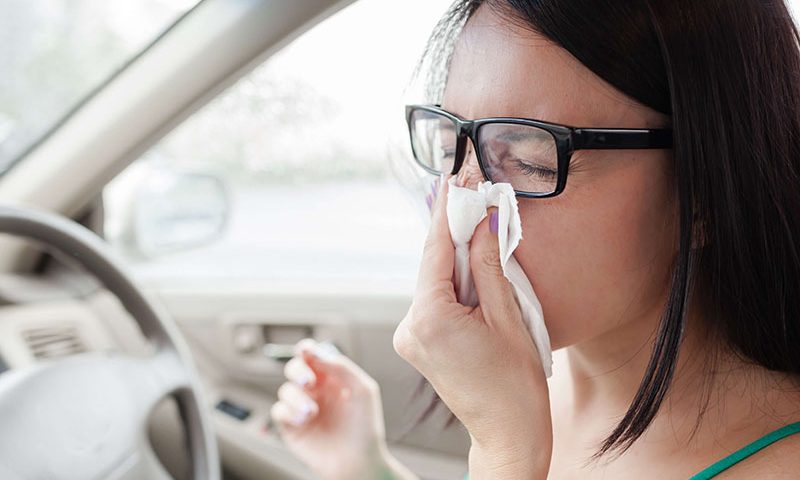Motorists warned to check hay fever tablets before driving

Snivels and sneezes can be a real irritation behind the wheel. But hay fever sufferers are also being warned that taking medication could make their driving unsafe.
Antihistamine medications used to treat hay fever are known to have a sedative affect, leaving drivers feeling dizzy or tired and leading to a greater risk of accidents.
Motoring experts are urging drivers to check the warnings on their medicines before setting out on the road.
Hay fever medication
Some common over-the-counter tablets can affect vision, hearing and reaction times, causing drivers to be considered unsafe.
Driving while under the influence of a drug that impairs your ability to focus on the road could see motorists landed with a minimum one-year driving ban and unlimited fine.
In serious cases, motorists could be punished with a prison term and criminal record that would stay on their licence for 11 years.
GEM Motoring Assist Chief Executive, Neil Worth, advised drivers to pay close attention to the side effects of their medication.
He said: “It’s important to check with your GP or pharmacist, and to read those warnings contained on the labels of the medicines you plan to take.
“The same road traffic laws apply to therapeutic drugs as to illicit substances, so if your driving is impaired and you cause a collision, you risk prosecution, a heavy fine and the loss of your licence.”
Tips for managing hay fever
There are a number of ways drivers can try to control their hay fever without the need for medication.
Use these top tips to help you stay safe behind the wheel:
- Dust and vacuum your car to help tackle dusk and pollen inside your vehicle.
- Carry sunglasses to stop pollen getting into your eyes while you’re driving.
- Stock up on tissues and keep them somewhere handy, so you can reach them without taking your eyes off the road.
- Slow down if you’re prone to hay fever, keep your pace slow and maintain a safe distance from the car in front to prevent a sneezing fit leading to an accident.
- Keep the windows closed to help stop pollen grains getting into your car.
- Avoid driving during early morning and late evening, when the pollen count is at its highest.
Planning a road trip now lockdown has eased? Follow our top tips to stay safe when driving this summer.


